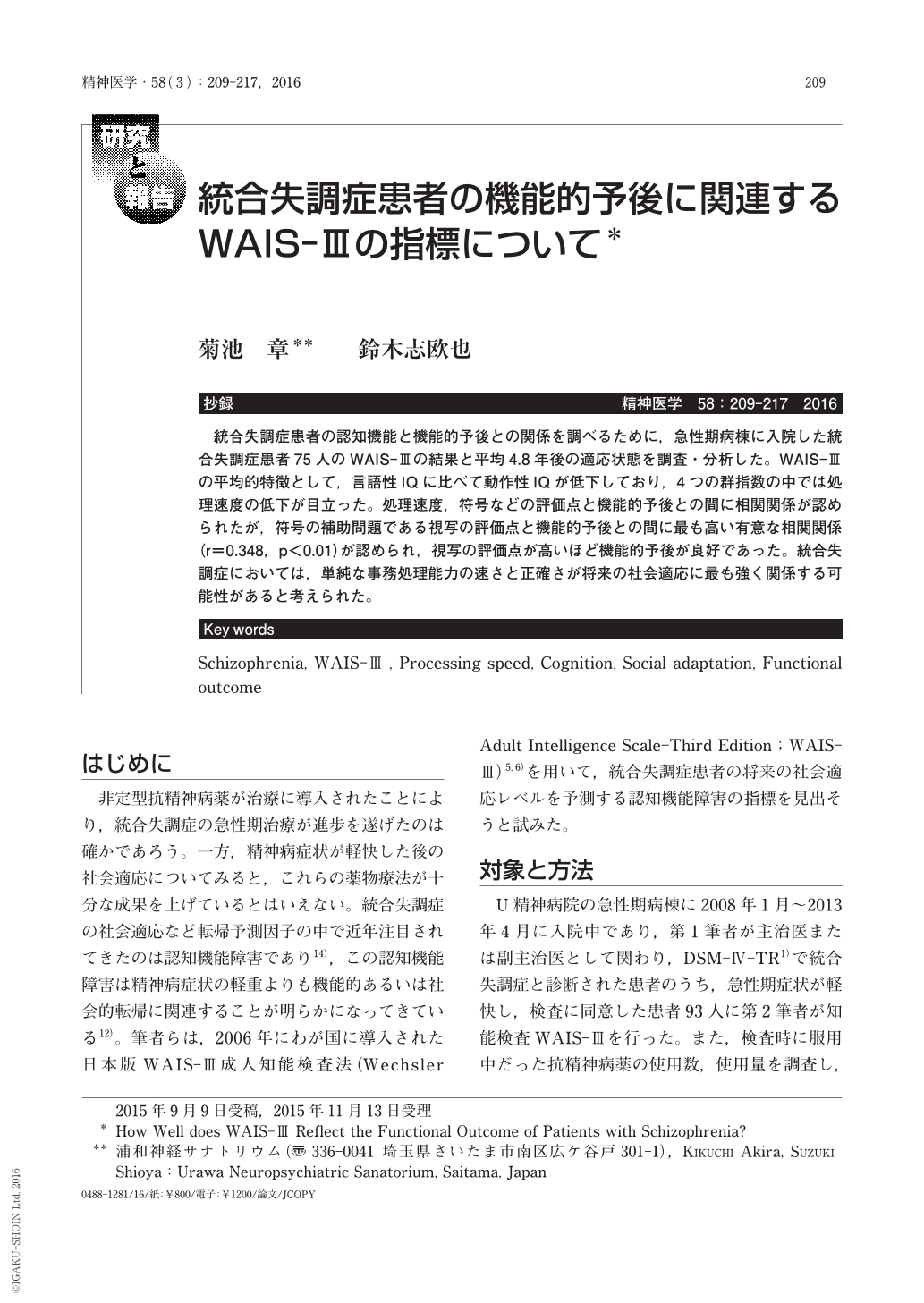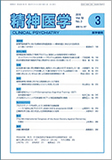Japanese
English
- 有料閲覧
- Abstract 文献概要
- 1ページ目 Look Inside
- 参考文献 Reference
- サイト内被引用 Cited by
抄録
統合失調症患者の認知機能と機能的予後との関係を調べるために,急性期病棟に入院した統合失調症患者75人のWAIS-Ⅲの結果と平均4.8年後の適応状態を調査・分析した。WAIS-Ⅲの平均的特徴として,言語性IQに比べて動作性IQが低下しており,4つの群指数の中では処理速度の低下が目立った。処理速度,符号などの評価点と機能的予後との間に相関関係が認められたが,符号の補助問題である視写の評価点と機能的予後との間に最も高い有意な相関関係(r=0.348,p<0.01)が認められ,視写の評価点が高いほど機能的予後が良好であった。統合失調症においては,単純な事務処理能力の速さと正確さが将来の社会適応に最も強く関係する可能性があると考えられた。
To determine the relationship between cognitive function and the functional outcome of patients with schizophrenia, we studied and analyzed WAIS-Ⅲ scores of 75 inpatients in the acute care ward, together with their adaptive state an average of 4.8 years later. Common characteristics of the WAIS-Ⅲ results showed that performance IQ was lower than verbal IQ, and that among the 4 index scores, processing speed in particular, was notably lower. A correlation was discovered between processing speed index and the functional outcome, especially in the scores for digit symbol-coding. A highly significant correlation was also noted among the copying scores, a supplemental test for the digit symbol-coding, and functional outcome (r=0.348, p<0.01). Additionally, the higher the copying score, the better the functional outcome was. It is possible that in patients with schizophrenia, the speed and accuracy of performing simple clerical tasks are strongly associated with their ability to adapt socially in the future.

Copyright © 2016, Igaku-Shoin Ltd. All rights reserved.


